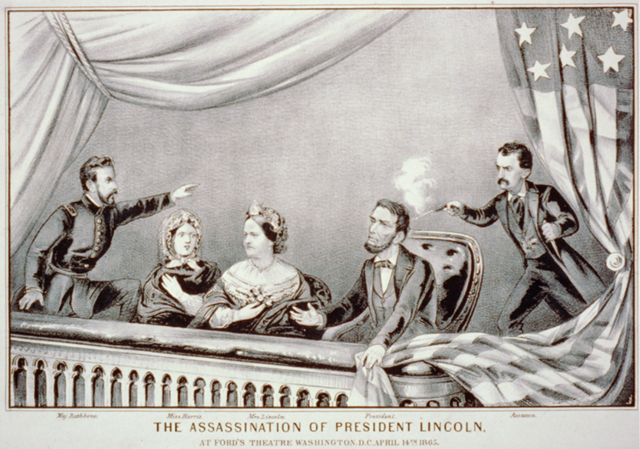
1942:
[135] Another S.C.R. [Senior Common Room] one: “they always assassinate the wrong man.”

1942:
[135] Another S.C.R. [Senior Common Room] one: “they always assassinate the wrong man.”
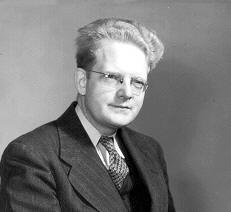
1942:
[134] Met Kay Mabee at Feinsod’s: Children’s Aid on Isabella. Just through with taking five kids to court, packed in rumble seat, to charge parents with neglect & take custody. She noticed they seemed to be playing some sort of game, & she discovered it was seeing who could amass the biggest collection of fleas. Tonight Helen staying down & I strolled over to Yonge for dinner, found Murray’s jammed, drifted down to Bloor, picked up Roy [Kemp] & had dinner at Babloor. Full of his draft, of course. So I’m depressed, irritated, nostalgic & half-sick, & I suspect that tooth, which bothered me last year at exactly this time, is acting up again. The Forum sent up a ragtag staff too & that adds to the depression. Oh God, I’m bored with the war: I can’t even rise to a nobler expression.
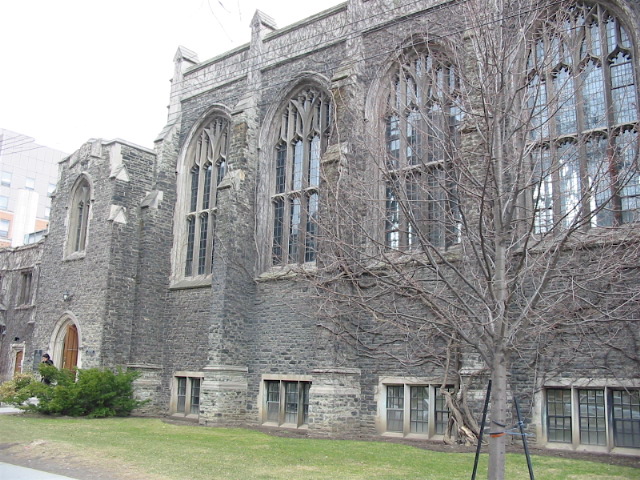
Burwash Hall, Victoria College: Senior Common Room at left
1942:
[132] Add to S.C.R. [Senior Common Room] catchwords (Sept. 14): “I don’t see why unconventional people aren’t willing to take the consequences of being unconventional.”
[133] At that party of Marion Darte’s Eleanor [Godfrey], stewed, said she didn’t like divorced people: Ray [Godfrey] said: “Say you don’t like the system of divorce, not that you don’t like divorced people.” I was very impressed with that for several days but not anymore. To dislike divorce is a vague approximation: to dislike divorced people is concrete as far as it goes. I don’t trust approximate remarks. Thus you say: “throw out all the old men & put in young ones,” meaning “throw out incompetents & put in good men,” but as the former looks vaguely like a more practical suggestion you hope it will approximate the latter.
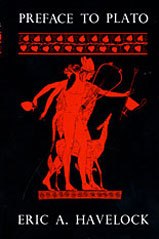
1942:
[131] Three lectures and busting with shit: went home early this afternoon. Then to Havelock’s for a debating society executive meeting, Eric has taken quite a shine to me evidently & he certainly does work hard at debates. They varied between political and local-scandal subjects, suggesting “should formal parties be suspended?” I said it would be more interesting to say “should formal dresses be suspended?” They came to no conclusions but are planning a group of inter-year debates.

1942:
[130] Well, today was the Retreat. I got through it somehow, dividing it into “The Search for Wisdom” (morning) and “The Search for the Word” (afternoon). I said everything is learned by the scientific method and absorbed in the personality as an art, a knack or flair. The former is knowledge, the latter wisdom & the goal of an “arts” course. Knowledge of itself is lumber or a machine: a liberal education implies the elimination of pedantry & vulgarity & the achievement of a fully integrated personality. Students come to college because they want to grow. Mental growth is a fact like physical growth. But the possessor of a liberal education is not his own end, nor do his class affiliations or social responsibilities exhaust his duties, for there are no douanes in culture. Hence wisdom is the entry into a universal order and a world of spiritual values. The discussion was good but the staff talked too much. I stressed “scientia,” knowledge, as against “love of wisdom,” philosophy, which defines defines the human attitude towards the knowledge. Love today is interest, the difference between the good & mediocre student of equal intelligence. In the afternoon I went on with “The Search for the Word”: wisdom reveals spiritual values but does not save more than a few Stoics of exceptional strength who have the very rare quality of heroic wisdom from an evil physical world. Besides, the personal is superior to the impersonal. Hence wisdom becomes less an abstract noun & more a concrete entity of mind, or person: a saviour, furthermore, a God also man. Hence wisdom which arrives at the Logos has expanded into revelation or vision. The kids couldn’t get that, of course, and fought whether you could know if God exists or not. However, I really think the Retreat was less hideously futile than usual.
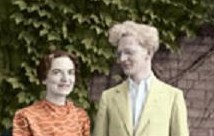
Regarding Today in the Frye Diaries, Frye’s response to Helen’s death 40 years later.
From Northrop Frye’s Late Notebooks, 1: 137–40, 142, 144, 145, 148, 150, 153, 156, 160, 191, 197, 204, 254, 345, 374, 379–80
This is not a diary, but Helen is dead. Not of cancer: she died in peace, I was told. Her Alzheimer fantasies were already turning her against me: she seemed to feel I could get her out of hospital if I only wanted to. It’s better for her to go now than to go through the final Alzheimer cycles, and it was very like her to slip out of the world so unobtrusively. I know nothing: Ned’s “iron door” doesn’t budge a crack. I think I know when she died—3.10 p.m. AEST,—but that may be an illusion. But they say there are helpers, and for so gentle and pure a spirit there must be. My hunch is that grief of survivors, being so largely self-pity, distresses, perhaps even impedes, progress to a world that makes more sense. I know that she would forgive me my sins of indolence and selfishness in regard to her, and therefore God will. I hope only that she knows now that I genuinely loved her very dearly, so far as human frailty permits. God bless, protect, and keep her among his own. I hope to see her again; but perhaps that is a weak hope. Faith is the hypostasis [substance] of what is hoped for, the elenchos [evidence] of the unseen. The one thing truly unseen, the world across death, may, according to my principle, be what enables us to see what is visible. I dreaded seeing her in the hospital, because she never smiled at me: she would smile at Jane, but I couldn’t keep the worry out of my face and tone, and I bored her. Besides, when Jane [Widdicombe] told her she was in hospital and had to get better before she could go home, she said “I can take that from you.” When I tried to say the same thing, she said “Don’t be so portentous.” It was the last thing she said to me, and it sounds like an oracle. Meanwhile there is Jane, a daughter sent by God instead of nature. Guardian angels take unexpected but familiar forms, as in Homer.
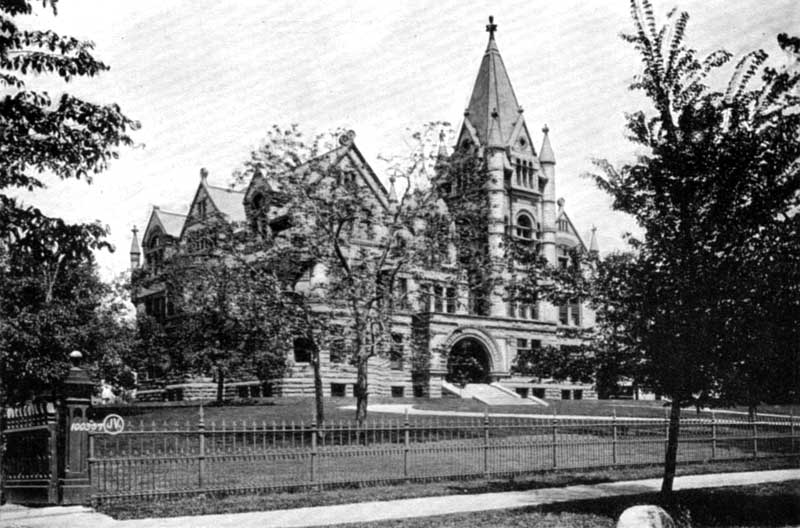
1942: The new term gets under way.
[129] Chancellor Wallace in a sermon quoted George H. Palmer on the death of his wife: ‘Who can contemplate the fact of her death & not call the world irrational if out of deference to a few particles of disordered matter it excludes so fair a spirit?’ Remarks like that don’t usually impress me, but this one does.

1942:
[128] Full of shit again. Every once in a while I get shocked by the callousness and brutality of members of my class: I was thinking of that Sunday afternoon at Millars. Mildred [Oldfield Millar] was speaking of young David’s tendencies to run across the road, & I said ‘You can imagine the state of mind of mothers on Charles St., or places where kids have to play on the streets.’ One woman said ‘Oh, I don’t think those people care much.’ Cats would care, and hens would care, but the mothers of Charles St. don’t give a damn.

On the difficulty of being English and Roman Catholic, here is Gerard Manley Hopkins, in “To seem the stranger lies my lot, my life”:
To seem the stranger lies my lot, my life
Among strangers. Father and mother dear,
Brothers and sisters are in Christ not near
And he my peace my parting, sword and strife.
England, whose honour O all my heart woos, wife
To my creating thought, would neither hear
Me, were I pleading, plead nor do I: I wear-
y of idle a being but by where wars are rife.I am in Ireland now; now I am at a thírd
Remove. Not but in all removes I can
Kind love both give and get. Only what word
Wisest my heart breeds dark heaven’s baffling ban
Bars or hell’s spell thwarts. This to hoard unheard,
Heard unheeded, leaves me a lonely began.

1942:
[126] Morley [Callaghan] & Eleanor [Godfrey] dislike the English but don’t fully understand why: it’s because they’re Catholics, of course. The confusions of interests today are curious. Heywood Broun turned R.C. after he’d become convinced, wrongly of course, that it wasn’t inherently Fascist. He judged the church by a political standard assumed superior to it. Yet if he had realized this he’d have sold out to the reactionaries. Funny deadlock.
[127] The theory of democracy about the will of the people being the source of government is, in that form, just will-worship like Calvin’s.